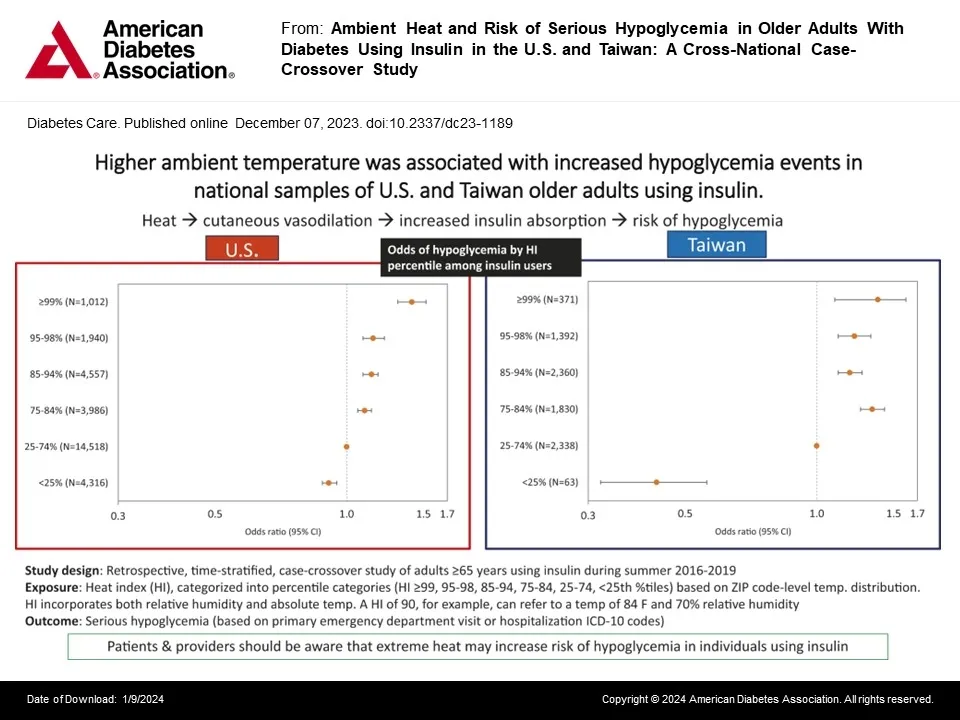Until now we knew the impact of the cold on the glycemia of people with diabetes, but of extreme heat we knew less.In recent years, on the occasion of global warming, many are the studies that speak of the impact of extreme heat on people's health, the most recent published online in Diabetes Care reveals new information.
We understand by extreme heat those average temperatures that are above the 27th Celsius.
study methodology
The thermoregulator response is often compromised in adults over 65 with type 1 diabetes, which makes them vulnerable to extreme heat.
The researchers evaluated the association between environmental heat and the risk of hypoglycemia in around 2 million people with type 1 diabetes and around 283,000 patients between 65 and 100 years with diabetes from the United States and Taiwan, respectively, who received insulin.
The use of medications was determined by at least one insulin dispensation prescribed within 90 days after the index event.
main ideas of the study
Among insulin users in general, 32,461 and 10,162 older adults in the United States and Taiwan, respectively, experienced a hypoglycemic event.
The risk of a severe hypoglycemic event was approximately 40% higher among insulin users in days with very high temperatures, above 30% compared to softer days.
On the contrary, in the days with a softer temperatures, the risk of hypoglycemia among insulin users decreased.
The authors could not capture variables that can alter the risk of severe hypoglycemia, such as outdoor activity, exercise and diet.
The first author of the Aayush Visario study, of the Rutgers Robert Wood Johnson School of Medicine, in New Jersey said that “our discovery of a high risk of visits to the emergency room related to serious hypoglycemia in older adults who use insulin and areExposed to extreme heat underlines the need for patients and suppliers to be conscious and cautious that extreme heat can increase the risk of hypoglycemia ”
Source: Link


